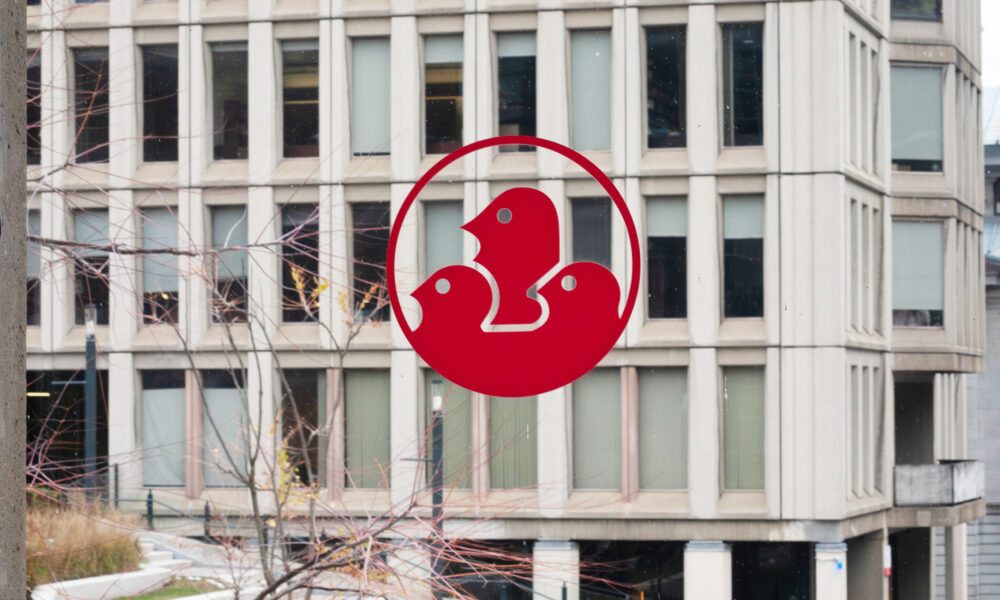The Students’ Society of McGill University (SSMU) gathered on Nov. 9 for its fifth Legislative Council meeting of the semester. Members of the council discussed students’ responses to tuition hikes, issues of food security on campus, and a potential statement in response to the ongoing Israel-Palestine conflict.
The meeting started with reports by councillors representing the Senate Caucus, the Arts and Science Undergraduate Society (ASUS), and the Nursing Undergraduate Society (NUS). The Senate Caucus discussed food security, stating that it meets with Let’s Eat McGill bi-weekly, and met with the Concordia Food Coalition on Nov. 8. The Senate also presented a university-wide survey on food security and encouraged the assembly to share it widely. Nursing Senator Naomi Pastrana Mankovitz explained that data from the survey will be used to write a motion for the creation of a Senate committee concerning food security.
“We need to assess food insecurity so we can better advocate for more security, with data,” Pastrana Mankovitz said.
Student Senators then presented questions they submitted to the McGill Senate in preparation for their upcoming meeting on Nov. 15. The first question—regarding the ongoing investigation into potential unmarked graves on the New Vic project site—was deferred due to the ongoing court case, but councillors noted McGill’s lack of transparency on the issue as a concern. Student Senators answered another question about the communications sent out by McGill on the Israel-Palestine conflict. As a representative of the caucus, Pastrana Mankovitz expressed its doubts on the decision-making process behind McGill’s communications.
“We are wondering about the consultation process behind the mass emails sent by McGill, their consequences and their apparent one-sidedness,” Pastrana Mankovitz said.
Arts and Science Councillors explained why ASUS decided to not release a statement on the Israel-Palestine conflict to students in the faculty. Councillors cited the faculty’s relatively small size and its limited resources, which could be allocated elsewhere considering that Arts and Science students already receive communications from both Arts Undergraduate Society (AUS) and Science Undergraduate Society (SUS).
The meeting continued with reports from different committees, including the Gender and Sexuality Advocacy Committee’s presentation of its plans to increase the amount of the Queer Improvement and Partnership Solidarity (QUIPS) Bursary—which distributes funds to queer students and recent graduates. If accepted, this would increase the $3,000 currently being distributed to support queer students’ urgent needs and community projects.
The Committee then updated the assembly on its advocacy work, such as their push for the removal of the gender dysphoria diagnosis requirement in StudentCareʼs new Gender Affirming Care policy, which provides coverage and legal assistance for students on their gender affirmation journeys. They also mentioned future projects of counter-protesting events to respond to anti-trans hate on campus.
SSMU executives then briefly reported on their activities. Vice President External Liam Gaither presented a few measures to address the recent announcement of tuition hikes in the province, such as a teach-in held on Nov. 8.
“There will be another protest on November 30th. Follow @ssmu_ea for more details, and wear the red square,” Gaither said.
Members of the council also approved a motion regarding a Statement on Commitment to Empathy, Respect and Anti-Doxxing on Campus. The statement will condemn doxxing—a practice that broadcasts private information about an individual—and provide resources for students who fall victim to doxxing in an attempt to make campus a safe place for students to express their views.
“‘[This] aligns with the SSMU commitment to fostering a safe and inclusive environment on campus and protecting students from harassment,” councillor Jacob Shannon explained, reading from the official motion.
Moment of the meeting:
The council concluded that McGill’s response to the Israel-Palestine conflict was inappropriate. They specifically expressed concern on the consequences of these mass emails on the student body.
Soundbite:
Resources in ASUS are already limited and although we support any statement released by the SSMU, this would not be the best allocation of resources for ASUS.” — Councillor Natan Sakariji on ASUS’ decision to not release a statement addressing recent events in Gaza.








